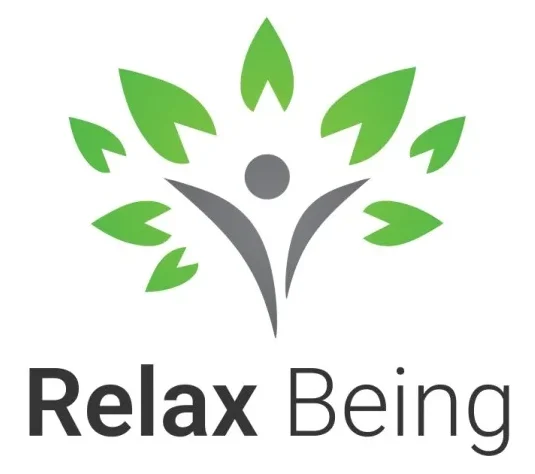Journaling For Mental Health
Introduction
When I first picked up a journal, it felt daunting like staring at a blank page that demanded answers I didn’t yet have. Over time, I discovered that Journaling For Mental Health can be more than just words on paper; it’s a tool for reflection, a quiet companion in the bigger journey of self-care. What helped me most was exploring simple ways to begin, such as starting a 30-Day Self-Care Challenge, where writing a few lines daily slowly turned into a routine I could trust.
Through practice, I found that the smallest steps often bring the biggest change. With the right resources and gentle tips, you can unlock proven benefits like reduced stress and better focus. The truth is, it’s always worth experimenting and trying different approaches until you find your rhythm. From my experience, once you give yourself permission to write freely, Journaling For Mental Health transforms from overwhelming to deeply healing.
Benefits of Journaling For Mental Health
When I first began Journaling for mental health, I didn’t expect it to bring such powerful benefits . With time, I noticed how this simple habit played a big role in improving my well-being. Writing down my thoughts became a gentle way of managing overwhelming emotions, especially when I was coping with anxiety or facing the heavy effects of depression. Each page felt like a safe space where I could untangle feelings and bring clarity to moments of confusion.
What surprised me most was how positive changes appeared slowly but steadily. By making Journaling For Mental Health a regular practice, I found myself naturally reducing stress without forcing it. On tough days, the act of writing gave me control, reminding me that small steps matter in healing. Over time, it became not just a tool, but a personal anchor that supported balance, calmness, and self-understanding in everyday life.
Privacy and Control in Journaling For Mental Health
When I keep a journal, I remind myself that it’s a safe space where I can write freely without fear of judgment from others. It gives me control over what I share and what I keep private, so I can choose if I wish to open up or keep my thoughts and feelings only to myself. In my own experience, This privacy is one of the reasons Journaling For Mental Health feels so powerful because the decision of what to keep within the pages or reveal to others is entirely my own.
Emotional release
In my own practice, I have found that Journaling gives me a safe space to express and engage with my deepest thoughts, especially during difficult times when the mind feels heavy. The simple act of writing things down takes what lingers in the head and turns it into words, which can release the inner noise that often feels overwhelming. This makes Journaling For Mental Health a deeply comforting practice that provides clarity and balance.
Self-Awareness Through Journaling For Mental Health
Through Journaling, I have found that it gently promotes self-reflection and allows me to explore daily experiences in a meaningful way. By putting raw words onto paper, thoughts take form and often reveal new perceptions that I had not noticed before. This process of reflection strengthens self-awareness, making Journaling For Mental Health an effective way to uncover hidden triggers and reshape how I see myself and the world.
Ways to Journal For Mental Health
When it comes to Journaling, there is no single right form. It’s about choosing what feels comfortable and natural for your self-expression. Personally, I’ve found that some days I prefer traditional writing in a notebook with a pen or pencil, while on others, I feel drawn to more artistic mediums like adding Doodles, sketching small Pictures, or even creating short Videos that capture my mood. These varied methods make Journaling For Mental Health flexible and personal.
Modern tools make the process even easier. For example, mobile Apps give you the flexibility to switch between text and Voice memos, depending on your energy or mood. Some people find audio reflections more natural than writing, and I often use them when I need to capture thoughts quickly without losing the flow. Whether you lean on classic pen-and-paper or digital mediums, the goal is to explore what you genuinely connect with, so your journal becomes a safe and meaningful space for self-expression.
Types of Journals That Support Mental Health
From my own journey Journaling For Mental Health , I found that different methods of journaling open doors to new topics we can explore, often when we are hoping to gain peace of mind. There are many options to create your own style, but it helps to stick with one method or topic that feels right. The key is to choose what works best for you in the present moment, making it a personal and healing practice.
Bullet journal
When I first tried a bullet journal, I was surprised at how flexible a simple dot-grid notebook could be for organization and planning. Unlike traditional diaries, it gave me space for to-do lists, quick reminders, and even brainstorming sessions. Over time, it became more than a planner it was a supportive tool that helped me manage my mental health in ways I didn’t expect. Using custom layouts and mood trackers made Journaling For Mental Health even more effective by helping me spot patterns and habits that influenced my energy.
One of the best parts was creating a mood tracker to record daily feelings and patterns, which made tracking moods, habits, and even potential triggers much easier. These simple considerations gave me valuable information about what influenced my energy and focus each week. The process was also surprisingly fun, especially when drawing inspiration from #BulletJournal ideas on Instagram and TikTok. Seeing other people’s creative spreads encouraged me to keep going, and gradually, my pages became not just functional, but also a form of inspiration for self-care.
Gratitude journal
Research has shown that building a habit of gratitude can have a positive effect on Journaling For mental health. A gratitude journal is not just about writing, it is about noticing the small things that make you feel grateful each day. This form of journaling for mental health often involves keeping a simple diary where you reflect on your emotions, recall moments of happiness, and explore strengths you might overlook. For me, the practice of noting down even a smile from a stranger or the comfort of my favourite book(s) has been deeply linked with improved mood and calmer thoughts.
To get started, many people use gentle prompts like “What made me smile today?” or “Which skills did I use that I am proud of?” Some days I write about inspiring movie(s) that lifted my spirit, while on others I focus on simple victories that highlight my inner strengths. Over time, this steady practice of gratitude sharpens awareness, boosts confidence, and adds a layer of meaning to daily life. The more you keep revisiting your diary, the more you discover that joy and growth are quietly present in ordinary moments.
Reflective journal
A reflective journal gives you a safe space to pause and truly reflect on your day, your past, and the experiences that shaped you. When I first started, I used simple prompts like “What is causing me stress right now?” or “What is my favourite way to recharge and why?”. This kind of writing helped me capture a fleeting memory that still makes me feel powerful, and I began to see patterns in my thoughts. Some days I prefer more structured notes, while other days I just try free-flow answering of questions to let my emotions flow without pressure.
Over time, this form of reflection became a tool for growth. By choosing one specific experience that happened and asking, “How did it make sense to me?”, I could see what was similar or different from others and what I had truly learned. Sometimes the smallest detail brought clarity, and sometimes a bigger event revealed hidden strength. A reflective journal is not only about recording life but also about understanding it, step by step.
Goal journal
When I first began keeping a goal journal, I was hoping it would bring some change in my daily routine and overall life. What I discovered was even more helpful it gave me clarity on what I truly wanted to achieve and a sense of accomplishment when I could track my progress. By creating a clear plan, I learned to break down both short-term and long-term goals into smaller steps. Using simple prompts helped me get started, and each year I could look back and know how far I had come.
The structure that worked best for me was using the SMART method. Making goals Specific but narrow, Measurable so I could measure outcomes, Attainable and realistically possible, Relevant to align with my values, and Time-bound with a clear time frame. This approach made every task feel realistic and possible to accomplish within set limits. By practicing this, I not only felt more focused but also built resilience, because each small step showed me I could actually reach what I set my mind to.
Getting started with Journaling For Mental Health
When I first had the idea of using journaling for mental health, I was unsure where to start. The types of journals can feel overwhelming, but keeping it simple is often the best way. I learned to set aside a few minutes a day, usually before bed, which feels easy and natural. Sometimes I just toss down random things on the pages, and other times I write in full sentence form, paying attention to grammar, structure, and flow like I would in academic papers. One helpful tip I discovered is to set realistic expectations. A short session of 3-5 lines can be more powerful than forcing yourself to write too much.
I often ask myself a simple question to guide my journal, such as “What stood out today?” This small habit not only makes writing easy but also helps me reflect in a meaningful way. For example, some journals show growth in just a few weeks, while others capture scattered thoughts that later connect. What matters is finding the time and starts that help you most. Over time, the practice naturally adapts, showing you how flexible and supportive Journaling For Mental Health can be.


